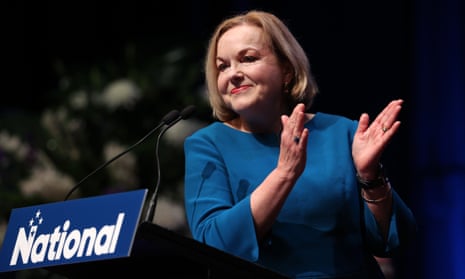The National Party has just wrapped up the final day of its annual general meeting. There was a bit more drama than usual. Former speaker of the house David Carter resigned from the board before the close of the meeting after failing to win the presidency from Peter Goodfellow, who has held the role since 2009.
Various changes were made to the party rules. A nod to the Treaty of Waitangi as the country’s founding document was inserted into the party constitution. There was heated debate on questions of party governance, with delegates opting to keep the board on a short leash following a disastrous election last year.
The parliamentary wing of the party went into the conference divided and will emerge from it divided. Being a “catch all” party works to National’s advantage when it is in government. When it is in opposition, it creates awkward tension when it comes to contentious social issues.
In 2021, the party’s liberal wing is at something of a low ebb. Even though the leader, Judith Collins, is a consistent liberal on policy questions, the right has an overall ascendancy thanks to last year’s election. A wave of retirements (some dignified, others less so) combined with a wave of lost marginal seats has produced a degree of weakness on the party’s left.
The week before the conference saw the party voting in lockstep against the government’s proposed ban on conversion therapy, on the grounds of problems with how the bill was drafted. Since the party says it is in favour in principle, it did have the option of voting in favour while seeking amendments through the legislative process. Or it could have allowed MPs a free vote on the matter – which is how these questions are often handled.
For whatever reason, it was decided that a show of unity was to be preferred. This has demoralised leading liberal MPs, some of whom have made their displeasure widely known. It also antagonised the Young Nationals, the party’s left-leaning youth wing. Both groups wore conspicuous rainbow pins to make their views on the matter quite clear.
For the overwhelming majority of New Zealanders, however, life went on as normal. I didn’t attend the conference myself due to family commitments, which included our children’s rugby games on Saturday. We live in what is traditionally a dark blue electorate and I’m confident most of the other parents on the sideline are faithful National voters.
Since their phone wasn’t buzzing with Signal updates, however, I am guessing they were oblivious to what was going on at the conference in Auckland. I’ll bet most of them didn’t even know it was going on.
I then went to mass in the morning. It’s an older congregation and, if I had to guess, much more National leaning than the population at large. After the priest let us go, I had dozens of notifications about conference proceedings. Everyone else was just talking about the Bledisloe Cup.
For all the sound and fury of the thing, the reality is that the fate of the National Party will not be decided in a conference hall but the caucus room in Wellington.
The institutions of the National Party are not wholly representative of the party itself. In many ways, New Zealand is more politicised than ever before. The last three elections have seen an increase in voter participation. But in the same way that golf clubs struggle for committee members even though the game is more popular than ever, few people have the time or inclination for any kind of sustained commitment.
What happens at the party conference makes a big difference to National’s most committed and ambitious followers as individuals. The intrigue and the manoeuvring and even the changes to the party constitution ultimately have very little meaning for its most important stakeholders: its actual and potential voters.
For them, the real meaning of this weekend is that they will catch parts of Collins’ speech on the nightly news or read a summary of it online the next day.
And what will they read about? A capable address that got straight into the shortfalls of a Labour government that may well be coming off its post-election high. From government connections to organised crime to broken promises on tax, there was no shortage of material with which Collins had to work and she didn’t let any of it go to waste.
There wasn’t much in the way of alternative policy announced in any specific detail. A distinct agenda is going to have to emerge sometime between now and the next election in 2023. That’s a lifetime away, however, and a laser-like focus by Collins on Labour’s mistakes will probably suffice for the time being. She delivered the goods.
If only she could also count on her colleagues giving a passable impression of collegiality.
Liam Hehir is a conservative political commentator in New Zealand. He is a member of the opposition National party.
